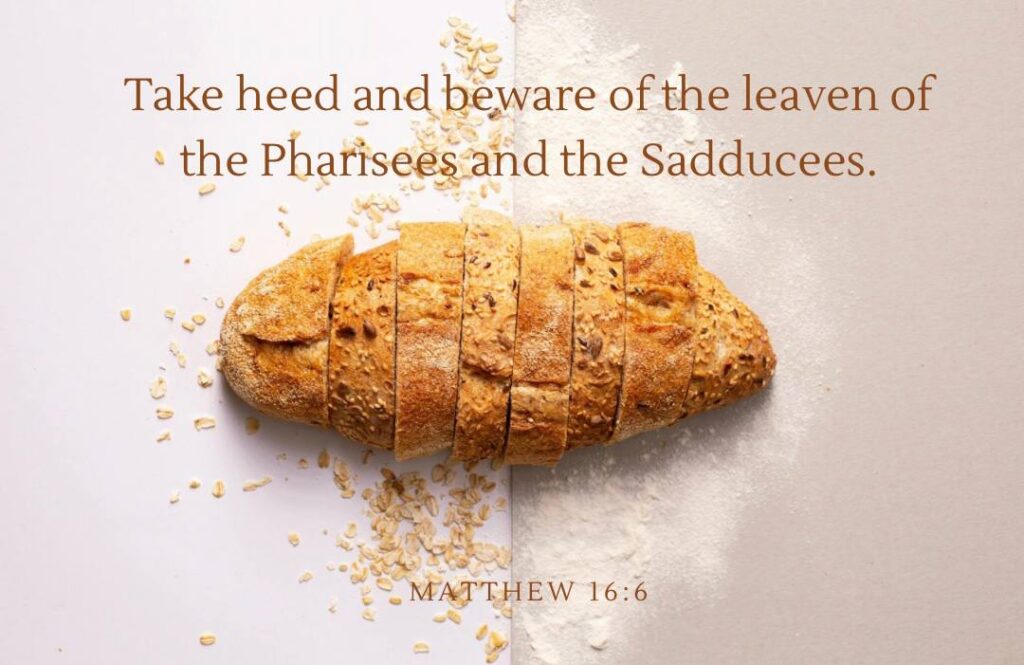Matthew Chapter 23

Beware the Leaven of the Pharisees and Sadducees
“Take heed and beware of the leaven of the Pharisees and Sadducees.” This was Jesus’ warning to His disciples a few chapters earlier, in Matt 16:6. In this chapter, after yet another round of attempts from the Pharisees to undermine Jesus, He describes at length what exactly was the leaven, or sins, of the religious elite of those times. Let us take some time today to examine our own thoughts and how we practice our faith, by asking ourselves these few questions:
Do we neglect the weightier matters of the law?
The Pharisees kept their religion to receive praise from men – thus they paid very close attention to the visible form of worship – making long prayers (v14), carefully tithing even small herbs like mint (v23) and cleaning their cups and dishes (v25). But they neglected to practice their faith before God – having justice, mercy and faith (v23).
Why do we practice our religion? We may not be attending service or participating in fellowships or praying for others to see, but could we be doing it to tell ourselves we are already practicing our religion, and there is nothing else we need to do?
Our prayers, Bible reading and fellowships are not our faith in themselves, but a means to an end – spiritually nurturing ourselves, putting to death the old man of sin, and allowing ourselves to be transformed into Christ’s image. This is what God really wants us to actively work on in our lives today. Let us not stop at the external form of worship, and progress on to these weightier matters as well.
Are we blind to our own faults?
In v29-30, Jesus accuses the Pharisees of being hypocrites, because they mourn for the prophets of the Old Testament who were killed by the rebellious Israelites, not realizing they were doing the exact same thing to Jesus.
Paul reminds us in 1 Corinthians 10:11, that the Old Testament stories were written as a warning to us. In this very chapter, Jesus’ comments on the Pharisees were recorded for our admonition as well. As we read the chapter, did it prompt us to reflect on ourselves, whether we exhibit the same flaws as the Pharisees?
Do we heed and obey the truth objectively, regardless of the messenger?
Despite all the flaws of the Pharisees, Jesus still told the people to observe whatever the Pharisees taught sitting on Moses’ seat (v2), but to discern between what they teach and what they actually do. Oftentimes, we judge a message based on the messenger. If we dislike or look down on someone, we may disregard what they say altogether. This is what the Pharisees themselves were guilty of – disbelieving Jesus because of His lowly status. Jesus does not want us to be like them.
When we hear an unpalatable message, for example when we receive some criticism in an argument, usually it is not that we cannot recognize the truth in what the other person says, but our pride gets in the way. But is our pride only resisting against the other person, or is it causing us to resist the truth as well? Let us remind ourselves to always humble ourselves to obey the truth, and not be blind like the Pharisees.

